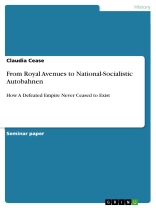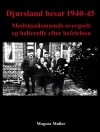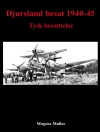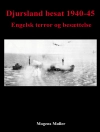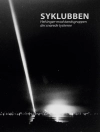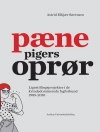Seminar paper from the year 2013 in the subject History of Germany – World War I, Weimar Republic, grade: 1, University of Alaska Fairbanks, course: HIST F445, language: English, abstract: It appears only violent interruptions in form of wars, civil uprisings, revolutions, and military putsches lead towards a rapid change. Nazi Germany is viewed as such a rapid change, but nothing could be farther from the truth. Granted, Germany’s first 50 years of the 20th century were tumultuou...
Seminar paper from the year 2013 in the subject History of Germany – World War I, Weimar Republic, grade: 1, University of Alaska Fairbanks, course: HIST F445, language: English, abstract: It appears only violent interruptions in form of wars, civil uprisings, revolutions, and military putsches lead towards a rapid change. Nazi Germany is viewed as such a rapid change, but nothing could be farther from the truth. Granted, Germany’s first 50 years of the 20th century were tumultuous to say the least. Three different forms of government: monarchy, democracy, totalitarianism; two instigated World Wars, two lost World Wars, in between the Roaring Twenties and the Great Depression, from restricted voting rights to general suffrage, from an economy in kid shoes to a leading industrial producer.
But rather than reinventing the wheel, the national socialistic movement hijacked deep ingrained systems, concepts, and traditions.
